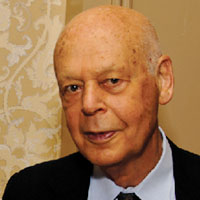In choosing my major, I knew that economics would offer some financial stability after college. Economics required both math and written skills which translate into the ability to think critically. Critical thinking is a skill desired by most employers. I also knew that economics gives way to a broad job market where I could pretty much go into whatever profession I wanted.
In terms of activities I am involved in, the main one is being the President of my sorority. In choosing this position I was not thinking about how this would effect me post-college. I was more concerned with my satisfaction in college and doing something that I really wanted to do. Looking back on my decision, this does help with managing post-college risk as leadership is a key skill that employers want in a potential employee. As President, I am presented with the opportunity to lead a group of 180 women each and every day. This experience is extremely valuable to my future as I will end up managing at some point in my career. This leadership also helped build my confidence, which is beneficial to having a job and taking risks on the job.
While making decisions in college, I had some awareness of the post-college effects; however, most decisions were made to increase my satisfaction with college. As long as I had the possibility of financial stability after college, the specifics of what I wanted to do in college could be based more on personal preference.
